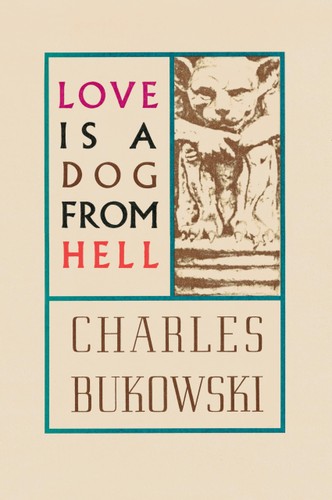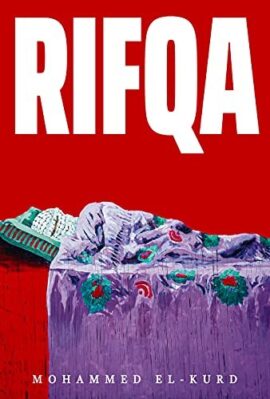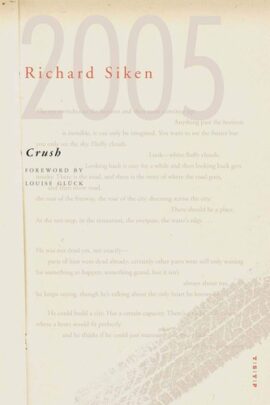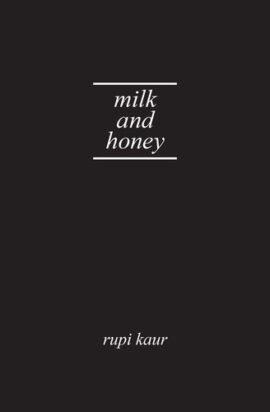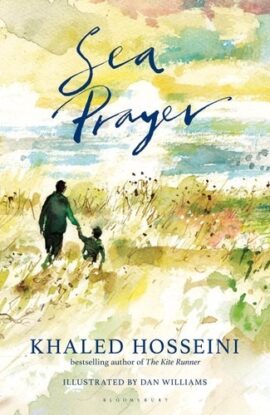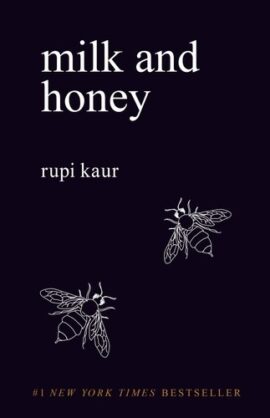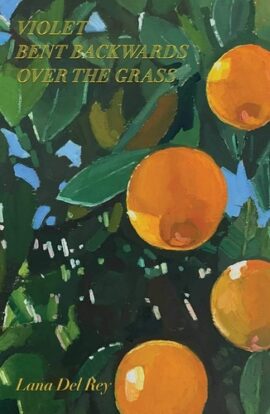Love Is a Dog from Hell
2.500,00 د.ج
A classic in the Bukowski poetry canon, Love Is a Dog from Hell is a raw, lyrical, exploration of the exigencies, heartbreaks, and limits of love.
A book that captures the Dirty Old Man of American letters at his fiercest and most vulnerable, on a subject that hits home with all of us. Charles Bukowski was a man of intense emotions, someone an editor once called a “passionate madman.” Alternating between tough and gentle, sensitive and gritty, Bukowski lays bare the myriad facets of love—its selfishness and its narcissism, its randomness, its mystery and its misery, and, ultimately, its true joyfulness, endurance, and redemptive power.
“there is a loneliness in this world so great
that you can see it in the slow movement of
the hands of a clock.”
A classic in the Bukowski poetry canon, Love Is a Dog from Hell is a raw, lyrical, exploration of the exigencies, heartbreaks, and limits of love.
A book that captures the Dirty Old Man of American letters at his fiercest and most vulnerable, on a subject that hits home with all of us. Charles Bukowski was a man of intense emotions, someone an editor once called a “passionate madman.” Alternating between tough and gentle, sensitive and gritty, Bukowski lays bare the myriad facets of love—its selfishness and its narcissism, its randomness, its mystery and its misery, and, ultimately, its true joyfulness, endurance, and redemptive power.
“there is a loneliness in this world so great
that you can see it in the slow movement of
the hands of a clock.”
| Editeur |
|---|
Produits similaires
Rifqa
Harmony
i am finally finding a balance,
a great harmony
between the loss
and the love,
between who i was
and who i have become
In this exquisite poetry collection, Whitney Hanson, chronicles the loss of a loved one, tracing the progression of grief and healing through the lens of music.
We each begin with a simple note, but as life progresses, we’re led to the next note, and the next—all of which combine to form the melody of a song and a life. As life becomes more complicated and complex, we find that loss, grief, and heartache can muffle our music, making the world go silent.
But as Whitney’s poems show, all of these rests and pauses in the music are part of the composition of life, and it is only by moving through the variations that we can find the harmony and grace that come with healing.
Crush
“One of the best books of contemporary poetry.”—Victoria Chang, Huffington Post
“Vital, immediate, and cinematic in scope.”—Library Journal (Best Poetry of 2005)
Selected by Nobel Prize laureate and competition judge Louise Glück as the 2004 winner of the Yale Younger Poets prize, Richard Siken’s Crush is a powerful collection of poems driven by obsession and love. Siken writes with ferocity, and his reader hurtles unstoppably with him. His poetry is confessional, gay, savage, and charged with violent eroticism. In the world of American poetry, Siken's voice is striking.
In her introduction to the book, Glück hails the “cumulative, driving, apocalyptic power, [and] purgatorial recklessness” of Siken’s poems. She notes, “Books of this kind dream big. . . . They restore to poetry that sense of crucial moment and crucial utterance which may indeed be the great genius of the form.”
Milk and Honey
“Rupi Kaur is the Writer of the Decade.” – The New Republic
A hardcover gift edition of milk and honey, the #1 New York Times bestselling poetry and prose collection by rupi kaur, which has sold over 3 million copies worldwide. milk and honey is a collection of poetry and prose about survival. About the experience of violence, abuse, love, loss, and femininity.
This clothbound edition features deckled edge paper, a woven ribbon marker, and a foreword written by the author. The book is divided into four chapters, and each chapter serves a different purpose. Deals with a different pain. Heals a different heartache. milk and honey takes readers through a journey of the most bitter moments in life and finds sweetness in them because there is sweetness everywhere if you are just willing to look.
Sea Prayer: The Sunday Times and New York Times Bestseller
On a moonlit beach a father cradles his sleeping son as they wait for dawn to break and a boat to arrive. He speaks to his boy of the long summers of his childhood, recalling his grandfather's house in Syria, the stirring of olive trees in the breeze, the bleating of his grandmother's goat, the clanking of her cooking pots. And he remembers, too, the bustling city of Homs with its crowded lanes, its mosque and grand souk, in the days before the sky spat bombs and they had to flee. When the sun rises they and those around them will gather their possessions and embark on a perilous sea journey in search of a new home.
Khaled Hosseini is one of the most widely read and beloved authors. His novels The Kite Runner, A Thousand Splendid Suns and And the Mountains Echoed have sold over 55 million copies all over the world. Hosseini is a Goodwill Ambassador for UNHCR, the UN Refugee Agency, and the founder of The Khaled Hosseini Foundation, a not-for-profit organisation which provides humanitarian assistance to the people of Afghanistan. He was born in Kabul, Afghanistan, and lives in northern California.
Dan Williams is a London-based artist whose illustrations accompanied an extract of A Thousand Splendid Suns in the Guardian when it was first published 15 years ago. His work has also appeared in National Geographic, Rolling Stone and the Wall Street Journal, amongst many other publications. dan-williams.
Milk and Honey
“Rupi Kaur is the Writer of the Decade.” – The New Republic
#1 New York Times bestseller milk and honey is a collection of poetry and prose about survival. About the experience of violence, abuse, love, loss, and femininity.
The book is divided into four chapters, and each chapter serves a different purpose. Deals with a different pain. Heals a different heartache. milk and honey takes readers through a journey of the most bitter moments in life and finds sweetness in them because there is sweetness everywhere if you are just willing to look.
Violet Bent Backwards Over the Grass
THE HIGHLY ANTICIPATED DEBUT BOOK OF POETRY FROM LANA DEL REY, VIOLET BENT BACKWARDS OVER THE GRASS
'Violet Bent Backwards Over the Grass is the title poem of the book and the first poem I wrote of many. Some of which came to me in their entirety, which I dictated and then typed out, and some that I worked laboriously picking apart each word to make the perfect poem. They are eclectic and honest and not trying to be anything other than what they are and for that reason I’m proud of them, especially because the spirit in which they were written was very authentic. Lana Del Rey
Lana’s breathtaking first book solidifies her further as 'the essential writer of her times' (The Atlantic). The collection features more than thirty poems, many exclusive to the book: Never to Heaven, The Land of 1,000 Fires, Past the Bushes Cypress Thriving, LA Who Am I to Love You?, Tessa DiPietro, Happy, Paradise Is Very Fragile, Bare Feet on Linoleum and many more. This beautiful hardcover edition showcases Lana’s typewritten manuscript pages alongside her original photography. The result is an extraordinary poetic landscape that reflects the unguarded spirit of its creator.
Violet Bent Backwards Over the Grass is also brought to life in an unprecedented spoken word audiobook which features Lana Del Rey reading fourteen select poems from the book accompanied by music from Grammy Award-winning musician Jack Antonoff.
The Poet X – WINNER OF THE CILIP CARNEGIE MEDAL 2019
Xiomara Batista feels unheard and unable to hide in her Harlem neighborhood. Ever since her body grew into curves, she has learned to let her fists and her fierceness do the talking.
But Xiomara has plenty she wants to say, and she pours all her frustration and passion onto the pages of a leather notebook, reciting the words to herself like prayers—especially after she catches feelings for a boy in her bio class named Aman, who her family can never know about.
With Mami’s determination to force her daughter to obey the laws of the church, Xiomara understands that her thoughts are best kept to herself. So when she is invited to join her school’s slam poetry club, she doesn’t know how she could ever attend without her mami finding out. But she still can’t stop thinking about performing her poems.
Because in the face of a world that may not want to hear her, Xiomara refuses to be silent.
